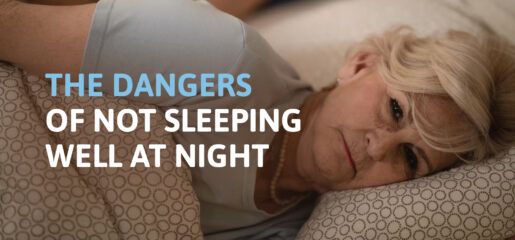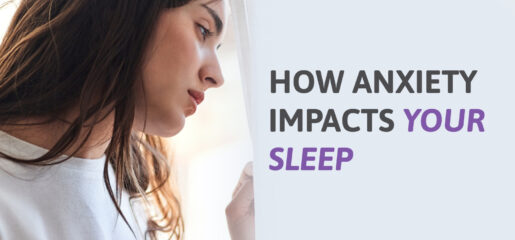
Who doesn’t want consistent, good sleep? It’s something everyone wants, but it’s often easier said than done. Sleep problems are common, and one of the biggest reasons why people struggle to sleep is because their sleep hygiene is very poor.
Sleep hygiene is a term that refers to how well-kept your sleep environment is. It can refer to when you go to bed, what you do when you’re in bed, the level of light in your bedroom, and all kinds of other factors. The better your sleep hygiene is, the better your chances are to get a good night’s sleep.
Of course, maintaining proper sleep hygiene can be a challenge (and many aren’t even quite sure what factors contribute to sleep hygiene). To help out, we’ve collected a group of the top sleep tips that can help improve your sleep hygiene, as well as some general pieces of advice that might be able to help you get better quality sleep.
Maintain a Standard Sleep Schedule
Want a simple first step to improving your sleep hygiene? Do your best to wake up at the same time everyday. Research shows an association between irregular sleep schedules and daytime sleepiness, and while research is still ongoing about how important a consistent sleep schedule is, it certainly isn’t going to make your sleep quality worse.
Try to stick to consistent waking times and bedtimes. Even if the benefits of holding a schedule are modest, it will at least help you get a consistent amount of sleep.
Establish a Bedtime Routine
Going along with a consistent sleep schedule, establishing a bedtime routine leading up to going to sleep can be helpful, too. Making sure you turn off extra bright lights, get away from TV and phone screens, and getting relaxed can make it easier to help your body get ready for sleep.
This includes removing distractions and calming your mind so you can more easily get to sleep.
Reduce Screen Time and Lights at Night
Reducing screen time and lights should be part of a bedtime routine, but even if you don’t establish a formal ritual, you should definitely avoid taking screens to bed. The reason is that any lights (including lights from your phone) can suppress the production of melatonin, which is a naturally-occurring hormone that is important to helping you fall asleep.
Research is pretty clear that even phone screens can cause sleep problems. It can hurt the quality of sleep in youth, but it can also impact the sleep cycle of adults. Consider putting your phone away at least 30 minutes to an hour before you plan on trying to fall asleep.
If, for some reason, you really need to use your phone close to bedtime, make sure you enable night mode on apps (which will eliminate light), or consider turning your phone to a blue-light blocking setting, which may help your body from producing hormones that would keep you awake.
Make Your Room Extra Dark
Along the same lines as making sure you reduce the amount of light you’re exposed to at all will help. Darkness helps trigger the production of melatonin, so if you’ve been struggling to fall asleep, it could be that your bedroom has too much light.
Tips that can help with this issue include eye masks, or even black-out curtains (which are curtains that are so thick that they block all natural light coming from a window).
Only Use Your Bed for Sleep and Sex
If you’re trying to create bedtime routines, then don’t just hang out in your bed. You should really only use your bed to sleep or to have sex, which will help create an association that the bed is specifically a place for resting and relaxation. Watching tv in bed, playing video games, or otherwise hanging out in bed, can make it hard to relax and fall asleep later at night.
Avoid Foods That May Interrupt Sleep or Eating Late
Eating food too late in the evening can impact your sleep, especially if it’s foods that can upset your stomach. You should definitely avoid greasy foods, spicy foods, or other foods that may cause gastric distress.
If you’ve noticed a full stomach impacts your sleep (either through dreams or just the physiological impacts of digestion), then consider not eating a few hours before you plan to go to sleep.
Stop Drinking Caffeine in the Afternoon
Caffeine is often a tricky problem that can impact sleep that many people don’t consider. Sure, most don’t drink a cup of coffee right before they go to sleep, but you need to stop drinking caffeine far before you actually fall asleep. Research suggests that you should stop drinking caffeine six hours before your planned bedtime.
For older adults, caffeine can stay in your system for even longer, so you may need to consider stopping caffeine intake even earlier.
Avoid Late-Night Alcohol
A lot of people have used (and continue to use) alcohol as a sleep-aid, since it often is effective at helping you fall asleep. However, late-night alcohol is a huge sleep hygiene mistake. Even though you may fall asleep faster, alcohol will make sleep lighter and make it easier to wake up after it metabolizes.
In fact, researchers found that when study participants stopped drinking alcohol at bedtime, they saw that participants had a reduction in daytime sleepiness. If you feel like you need help falling asleep, there are other options (which we’ll get to a bit later in this article).
Don’t Nap Too Much
If you struggle to get good sleep, you may be a frequent napper. While there isn’t anything wrong with short, occasional naps, chronic naps are bad for sleep hygiene, and can make it hard to sleep through the night. While there is an association between poor sleep and too much napping, it doesn’t mean you can’t nap at all.
For older adults, there’s actually a comfortable threshold of napping time. Research suggested that daily, afternoon naps of 90 minutes had very minimal, negative effects on the sleeping patterns of older adults. Even for younger adults, short naps don’t seem to have much of an effect on night time sleeping at all (just as long as they aren’t too late in the evening).
Avoid Nighttime Nicotine
Just like caffeine, nicotine is a stimulant, and research has shown that any form of nicotine (including patches) is associated with poor sleep quality. While habitual smokers should likely focus on quitting altogether, occasional smokers should take care to not smoke too close to bedtime.
Sleep Tips That Can Pair with Good Sleep Hygiene
Now we know what you should avoid that can help improve your sleep hygiene, but there are actions that you can take that can directly improve your ability to sleep. If you feel like you have good sleep hygiene, but still struggle to fall asleep or stay asleep, then take a look at the following tips.
Exercise Regularly
Exercise has a lot of benefits, but a benefit that’s often missed is how exercise can improve your quality of sleep. Research has shown that exercise has a positive effect on the sleep of adults, and some research suggests that quality exercise can offer similar benefits to taking sleeping medicine.
If you struggle to feel tired and fall asleep, then try exercising regularly. Just make sure to finish intense exercise at least an hour before you plan to go to sleep (otherwise, it can make it harder to fall asleep and otherwise affect how good your sleep is).
Try Melatonin
We’ve mentioned how to help promote the natural production of melatonin in your body, but taking melatonin supplements might help you sleep better, too. Research suggests that melatonin can help improve the overall quality of your sleep, and since the side-effects of melatonin are exceptionally mild, it may be worth trying to see if it helps your sleep improve.
Try CBD
CBD (short for cannabidiol) is a cannabinoid that can be found in high concentrations in hemp. CBD is legally available in most countries, and research has suggested that it might have a positive impact on sleep disorders like insomnia.
Research has also suggested that CBD can help to soothe anxiety and help manage chronic pain, so if either of these issues are impacting your ability to fall asleep or stay asleep, then you should consider seeing if CBD can help.
Like melatonin, CBD has very mild side-effects (and many people won’t feel any at all), and is generally very safe to use. However, we always suggest that you talk with your doctor before starting to take CBD, as it can interact with certain prescription medications.
Sleep Hygiene Takeaway
Maintaining sleep hygiene is an excellent way to make sure that you get consistent, excellent sleep. Some sleep hygiene points to keep in mind include:
- Keeping a normal sleep schedule
- Maintaining a standard bedtime routine
- Reducing or eliminating screen time before sleeping
- Using an eye mask or blackout curtains to make your bedroom extra dark
- Only using your bedroom for sleeping or sex
- Avoiding foods that cause gastric distress
- Stopping caffeine consumption at least six hours before you plan to sleep
- Not using alcohol as a sleep aid
- Not napping too much
- Avoiding nighttime nicotine
We also talked about some actions you can take that can directly improve your sleep, like:
- Regular exercise
- Melatonin
- CBD
If you’re curious about whether CBD can help you sleep, we’d love to give you more information! We’ve talked a lot about how to use CBD for sleep, but if you have specific questions, we’d love for you to reach out and contact us directly.
If you’re ready to start shopping for CBD, you can take a look at our online store, especially at our CBD products designed specifically to help our customers get better sleep. Thanks for reading, and we look forward to hearing from you!

